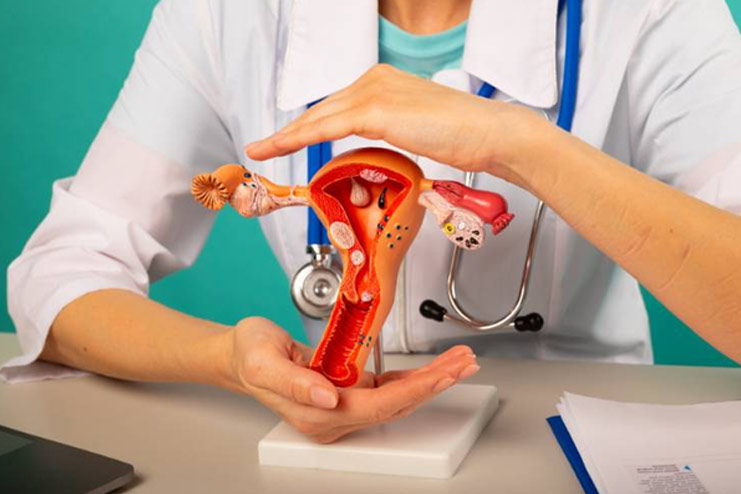Affiliate Disclaimer
Some links in this article are affiliate links. We may earn a small commission if you make a purchase through these links, at no extra cost to you. We only recommend products we find useful to our readersHave you ever wondered why you’re not able to have an orgasm? You might assume it’s a common issue and dismiss it, but it can become a more significant concern over time. What you think is the cause might be something else affecting your ability to experience pleasure in bed.
Orgasmic dysfunction, also known as anorgasmia or female orgasmic disorder, is an inability to orgasm during sexual intercourse. It occurs both in men and women but is more common in women. Orgasm is not a definite feeling that lasts for a particular time or intensity. It depends on various factors that make an orgasm high or low intensity.
Understanding the complexity behind a woman’s difficulty in reaching orgasm is essential for effective intervention. This issue can arise from various factors, including physical health, psychological influences, relationship dynamics, or situational stress.
Recognizing these underlying causes is the crucial first step toward resolution. Once identified, it’s essential to address them through targeted treatments or with the support of a partner. Facing these concerns openly can prevent the exhaustion and dissatisfaction that often come from pretending to climax for the sake of a partner’s pleasure.

Types of Orgasm Dysfunction
Orgasms don’t feel the same every time or for everyone. The experience of orgasm varies from person to person and depends on how each individual responds to sexual satisfaction. There are four primary types:
- Primary anorgasmia: Never had an orgasm before
- Secondary anorgasmia: Had orgasm previously but facing difficulty in the present
- Situational anorgasmia: Only experiencing orgasm under specific situations like oral sex or masturbation
- General anorgasmia: Presently not able to have an orgasm in any situation or any partner
Potential Causes of Difficulty Achieving Orgasm in Women
1. Alcohol Consumption

Studies (R) say alcohol consumption can impact female sexuality, which can result in sexual dysfunction or lack of orgasm. If you have read or heard that alcohol can improve your sex drive, then understand it’s just a myth, as no correlation and no evidence is supporting it.
Women who lack orgasm must check their amount of alcohol intake and limit it to improve their sex life.
2. Relationship Issues

Women who are facing relationship problems may struggle to have an orgasm. You might have communication problems, a poor bond with your partner, or be unable to express what you are facing or how you feel. Talking to your partner is the first step to addressing the issue.
Let your partner help you and make you feel comfortable. You need to feel trust, faith, and security to experience the pleasure of sex.
3. Mental Stress And Depression

Low sexual desire is associated with depression, and it leads to fear rather than pleasure. Experts state that poor mental health is a risk factor for female sexual dysfunction.
If you are lost in your thoughts, feeling depressed or stressed, then you may find it difficult to orgasm. You may not feel inclined to indulge in intimacy.
Meet with a specialist to take prescribed medicines or work with a therapist to help you heal.
4. Fear Of Intimacy Due To Previous Experiences

It is challenging to have an orgasm for women with fear of intimacy. The fear of sex could be due to past experiences and childhood sexual abuse (CSA). Women may lack a sense of ownership over their bodies due to past sexual abuse, which may limit their awareness of sexual response due to fear.
5. Multiple Sclerosis

Health conditions such as Multiple Sclerosis can reduce the ability to orgasm. Multiple Sclerosis leads to communication problems between the brain and other body parts. It affects the sexuality of both men and women. (R)
6. History of Gynecological Surgery

Gynecological surgery, like a hysterectomy, can impact your sexuality. It doesn’t impair sexual function, but your sexual response can be different post-surgery. It is not the same for all females who have undergone the surgery, as it depends on the organs and nerves it affects. But it can be one of the reasons why you may not orgasm.
It doesn’t mean that the surgery will make it difficult for you to have an orgasm, but the sense of feeling pleasure and the approach may need to change.
7. Hormonal Problems

Hormonal imbalance and fluctuations can be a common reason for women not reaching orgasm. Estrogen and progesterone, along with male hormone testosterone, are significant for sexual desire in women.
As hormones fluctuate, women feel more arousal before a menstrual cycle. When these hormones are low, sometimes due to menopause, it may lead to orgasm dysfunction.
8. Medication

Poor orgasms or no orgasms can be due to certain medications. Some blood pressure medicines, birth control pills, and anti-depressants can impact your ability to have an orgasm during sex.
If you notice a change in your sexual activity after starting a new medication, check back in with your doctor to change your prescription or alter your treatment plan.
9. Insufficient Lubrication

Insufficient lubrication can be an obstacle to female orgasm, as dryness can make sex painful and very uncomfortable. Vaginal dryness also prevents proper stimulation, which may be necessary for an orgasm.
Use a lubricant to improve stimulation and penetration to reach orgasm with more ease. (R)
10. Painful Sexual Intercourse

Painful or uncomfortable sex is a common reason for women not having orgasms. Conditions such as vulvodynia and vaginismus may be responsible for experiencing pain during sex, or it may be due to a psychological disorder.
If you are feeling pain or discomfort during sex or masturbation, then you must meet a gynecologist. Unless you treat it, you will continue to fail to orgasm every time you have sexual intercourse.
11. Low Oxytocin Levels

The love hormone oxytocin, released during intimacy, is closely linked to the ability to have an orgasm. It is produced by the brain when you feel connected or bonded with your partner. When your body isn’t making a good amount of this hormone, it causes poor orgasms or no orgasms. (R)
A low level of oxytocin can be due to stress or a communication gap with your partner. To increase oxytocin levels, spend time with your partner and work on your relationship.
12. Lack of Hydration

Are you not drinking enough water? Poor hydration can be one of the reasons for not having an orgasm. Lack of hydration causes fatigue and constipation, which can make sex unpleasant.
With proper hydration, the arousal tissue engages in the connective system, which eventually leads you to have an intense orgasm. It is one of the essential mechanisms for sexual pleasure. Hence, keep sipping water and healthy fluids throughout the day(R)(R).
13. Urge To Pee During Sex

When you start intercourse with a full bladder, then it causes the urge to pee halfway through the act. Urinating after sex helps prevent urinary tract infections, but doing it prior is good, too, because it doesn’t interrupt your pleasure in bed.
14. Lack of Concentration

Psychological problems can stop women from reaching climax. One of the causes is a lack of concentration during intercourse due to low libido. When you don’t fully engage, you may be dissatisfied during lovemaking.
Though orgasm is a temporary pleasure, it is essential to have satisfaction in bed.
15. Sitting in a Chair All Day

You are incredibly dedicated to finishing your assignments and reaching the targets within the deadline. But did you realize that may be affecting your sex life?
Sitting in place throughout the day means no movement in your body, which also affects your pelvic region. This effect increases the risk of “no orgasm.”
Some Other Causes of Orgasm Dysfunction
As mentioned previously, orgasm may be a temporary pleasure, but it is also essential. Some causes of this condition may not be critical, but others need medical check-ups.
- Aging
- Medical Conditions: such as Heart disease and Diabetes
- Physical Disorders: such as Vaginal dryness and pain
- Psychological Problems: such as anxiety or depression
- Relationship issues: such as boredom or relationship conflicts
- Hesitation, shyness, or lack of interest
How to Diagnose Orgasm Dysfunction?
When you notice that you are affected by orgasm dysfunction, please don’t ignore it. Diagnosing the condition must start with knowing the reason and approaching your doctor if it remains unchanged
- Consult your doctor
- Schedule an appointment with your gynaecologist
- Review your previous sexual experiences
- Know your medical conditions
- You may have to undergo a physical examination
How to Treat Orgasm Dysfunction
Consult your doctor to treat orgasm dysfunction. They will check if you have any physical disorders or health conditions causing the condition.
Regular exercise can treat problems in the pelvic region by strengthening the muscles, which may help you achieve orgasms.
Undergoing therapies from medical experts can help you overcome the problem. It is a common condition that is generally treatable.
Conclusion
Understanding that a woman’s difficulty in reaching orgasm can stem from various sources is crucial. These reasons may be physical, psychological, relationship-related, or situational.
Gaining awareness of these factors is the first step. Next, work on addressing these issues with appropriate treatments or with your partner’s support to overcome the barriers to orgasm. Address these concerns before you become exhausted from faking orgasms for your partner’s satisfaction.
-
Feb 2021Written by Ramya
-
Sep 2024Edited by Ankita
In this Article




















